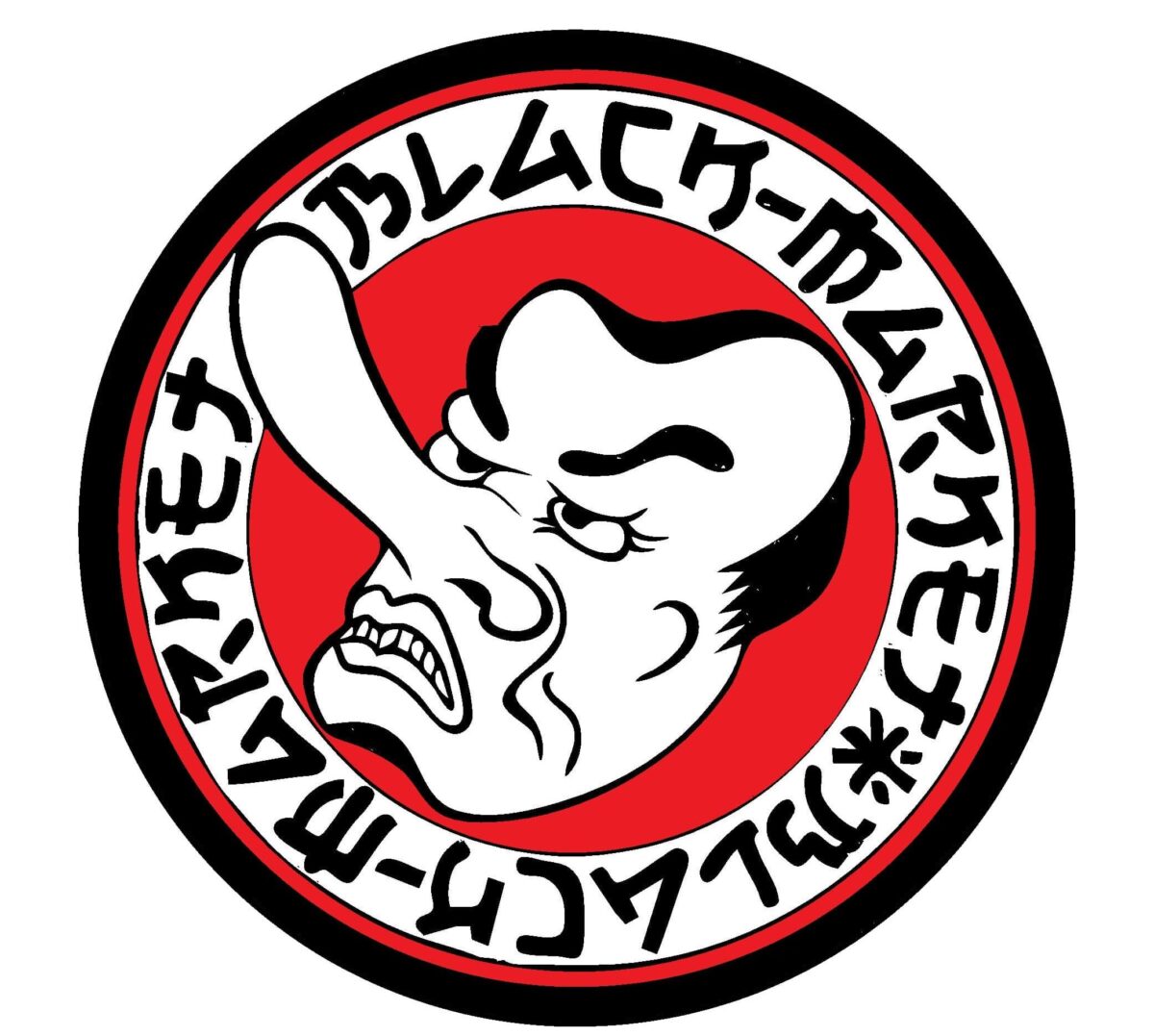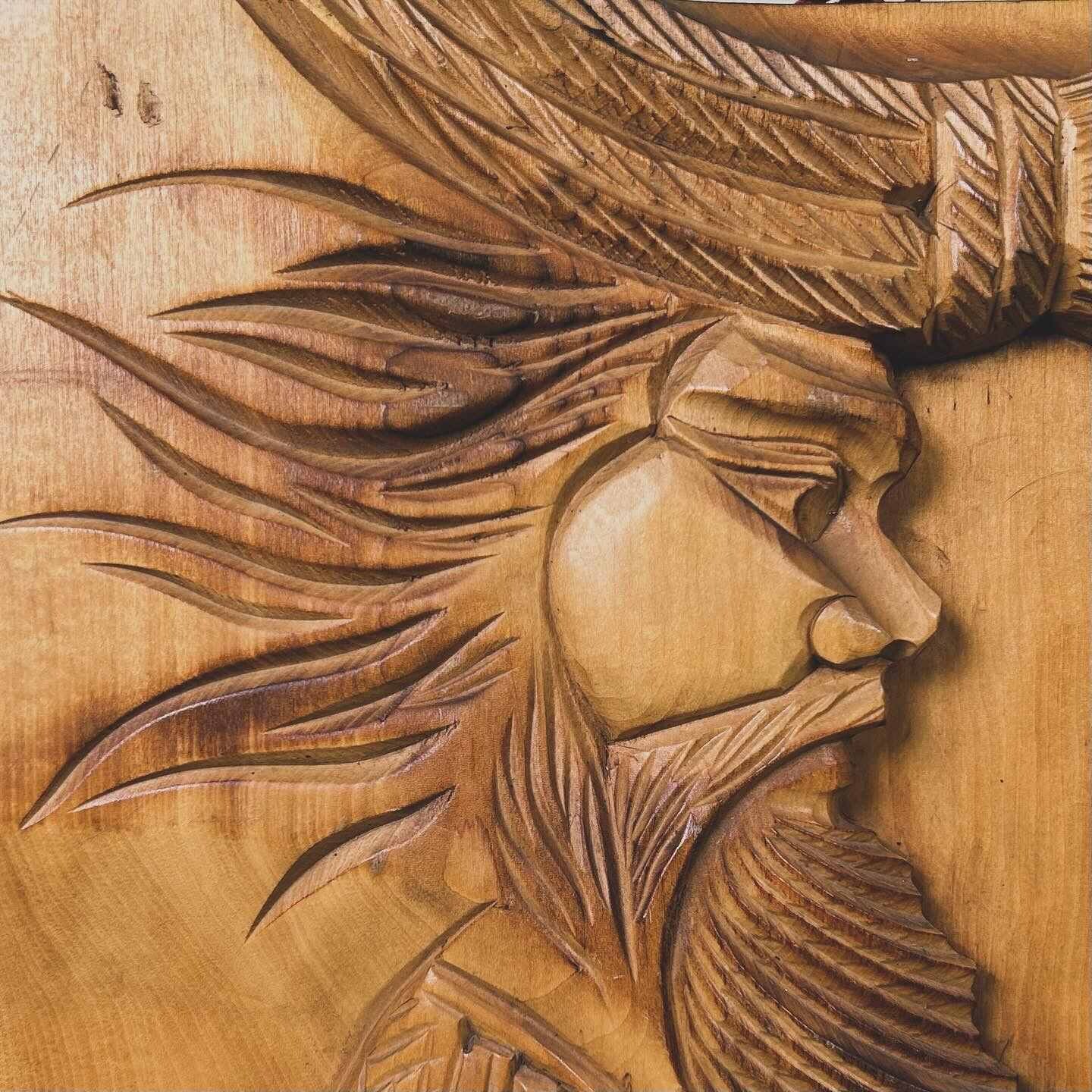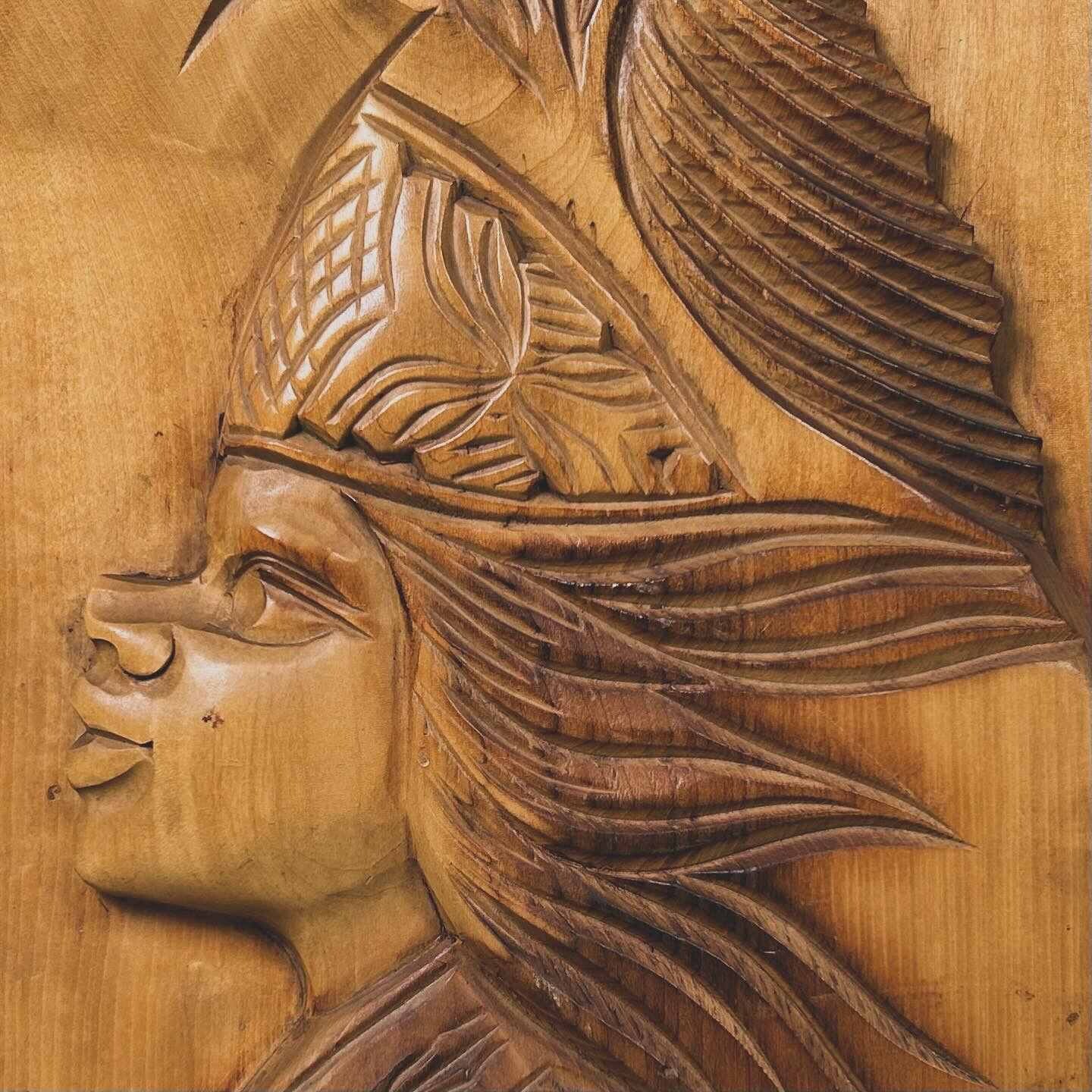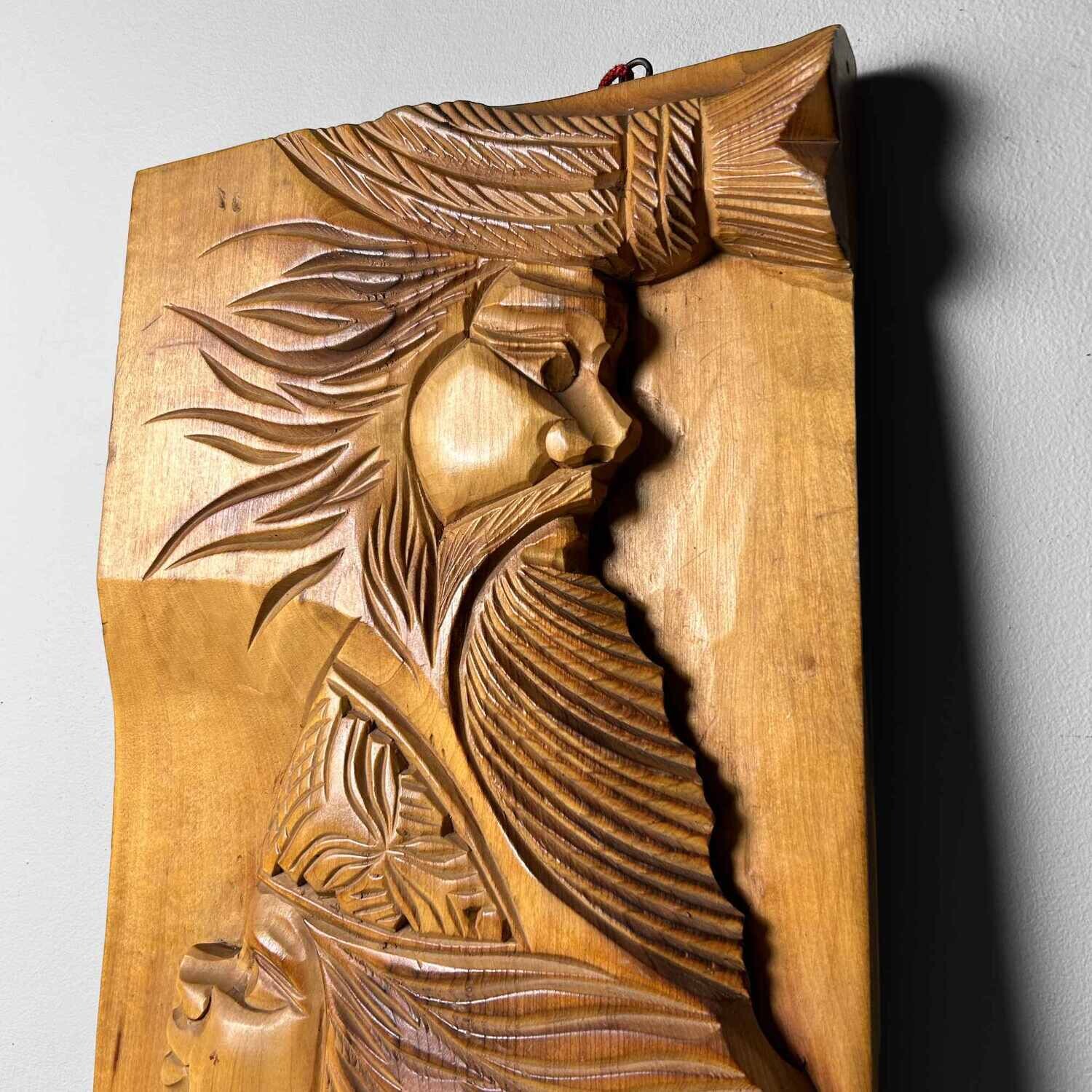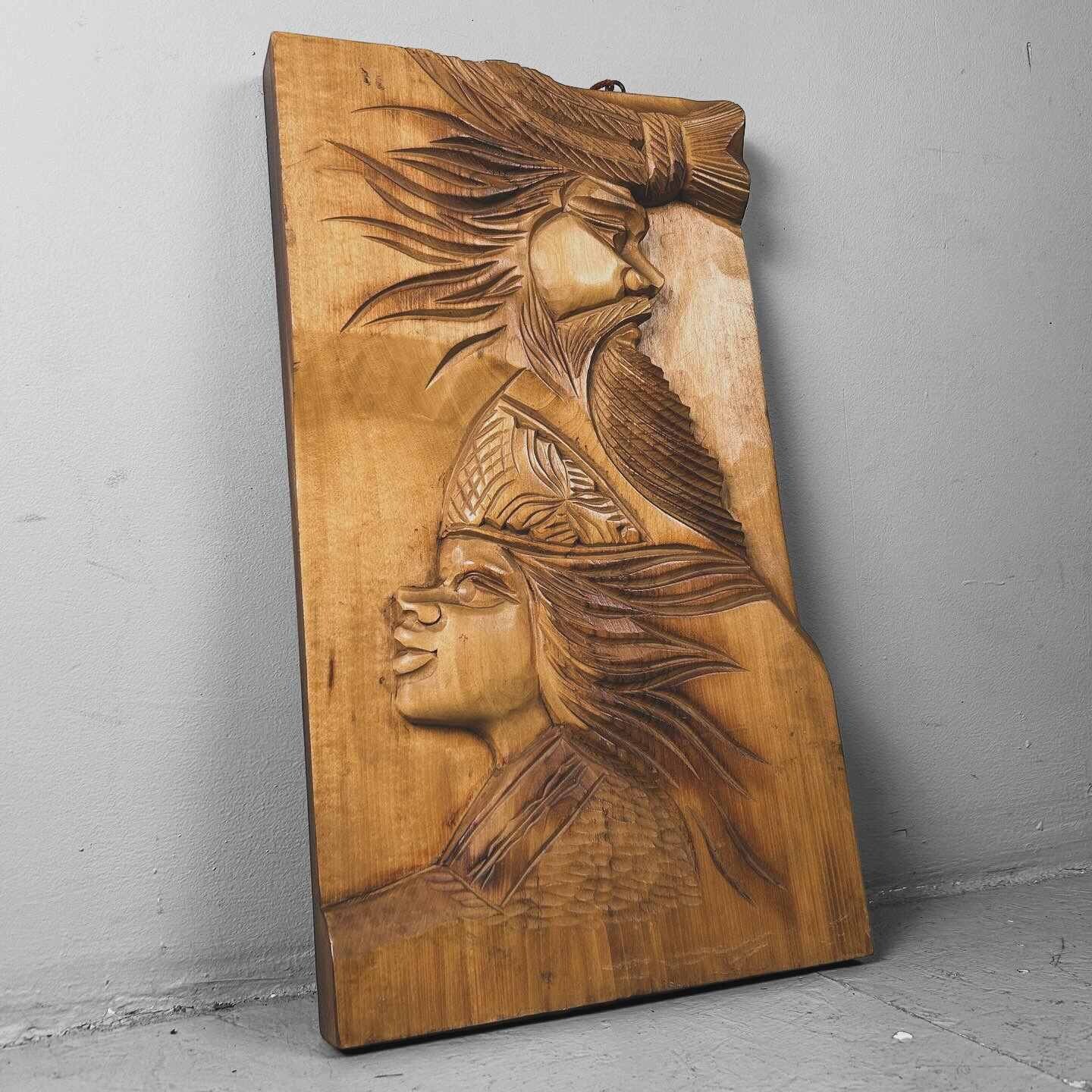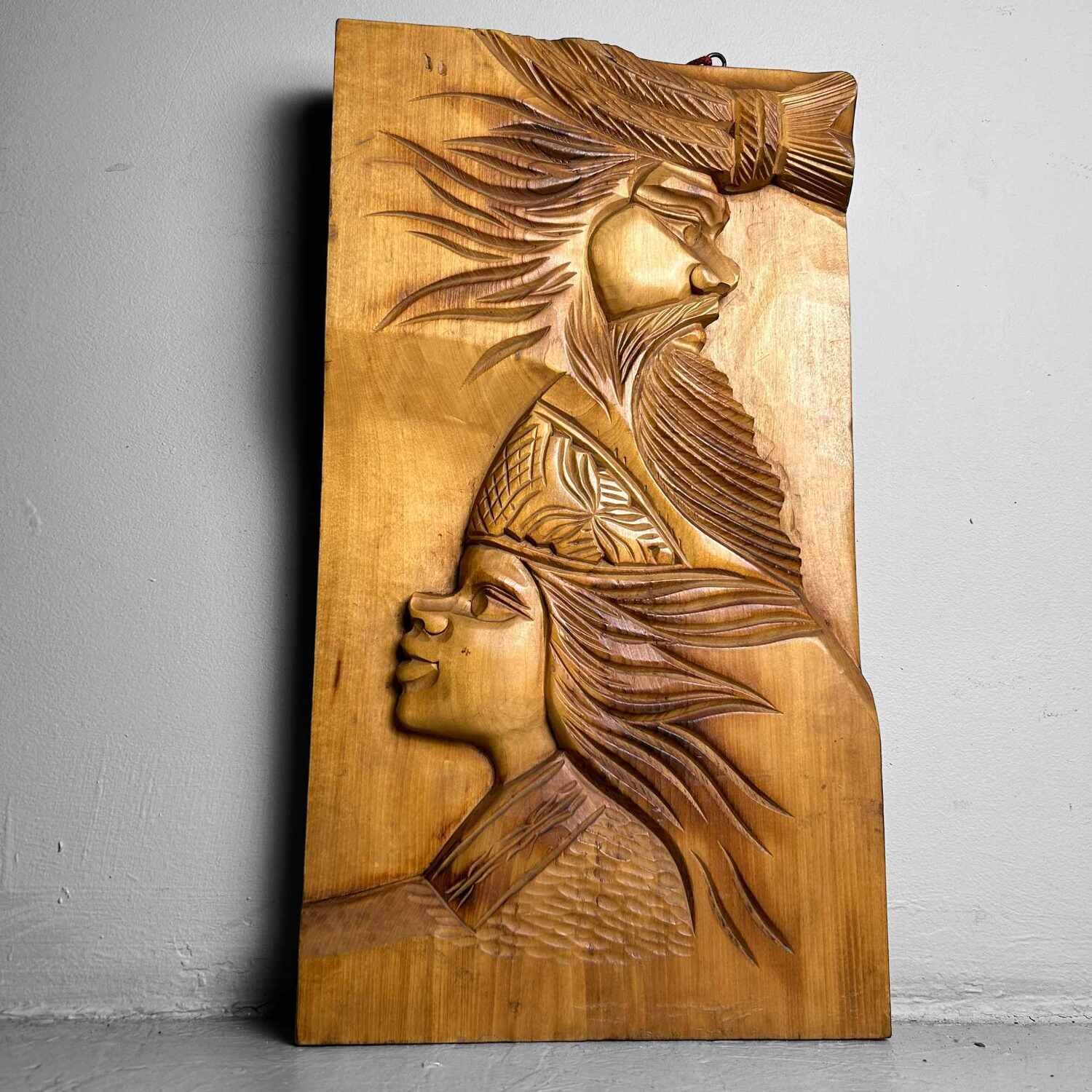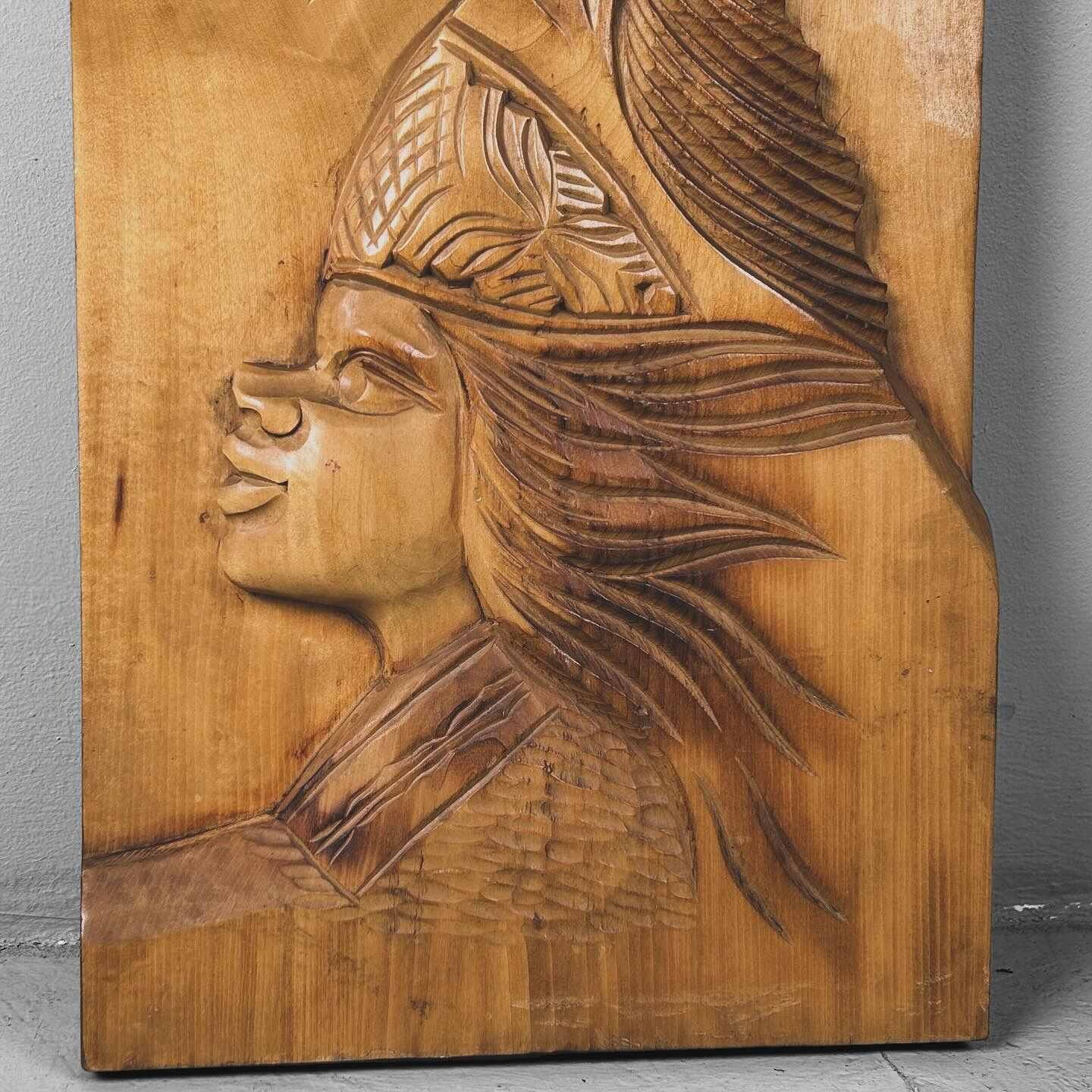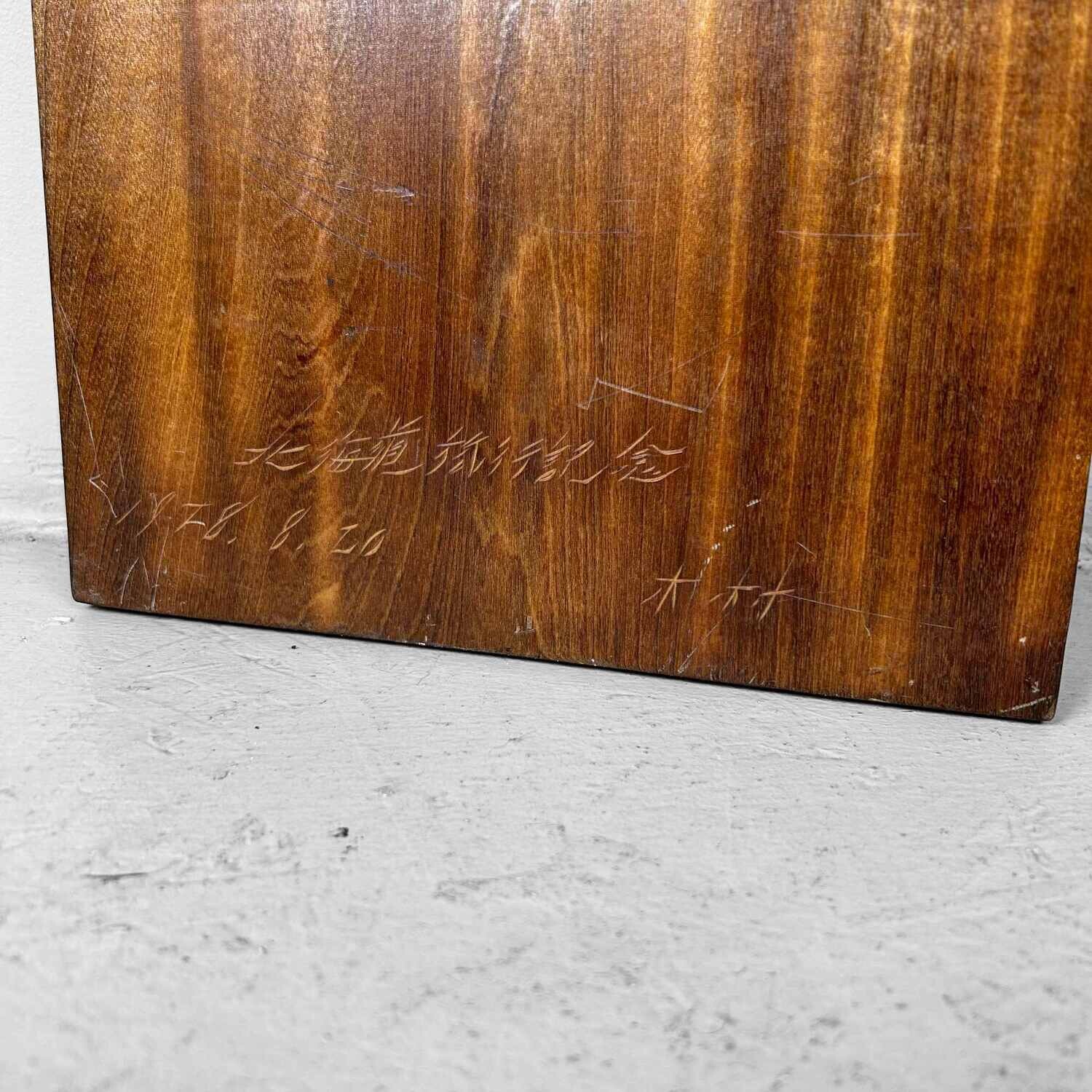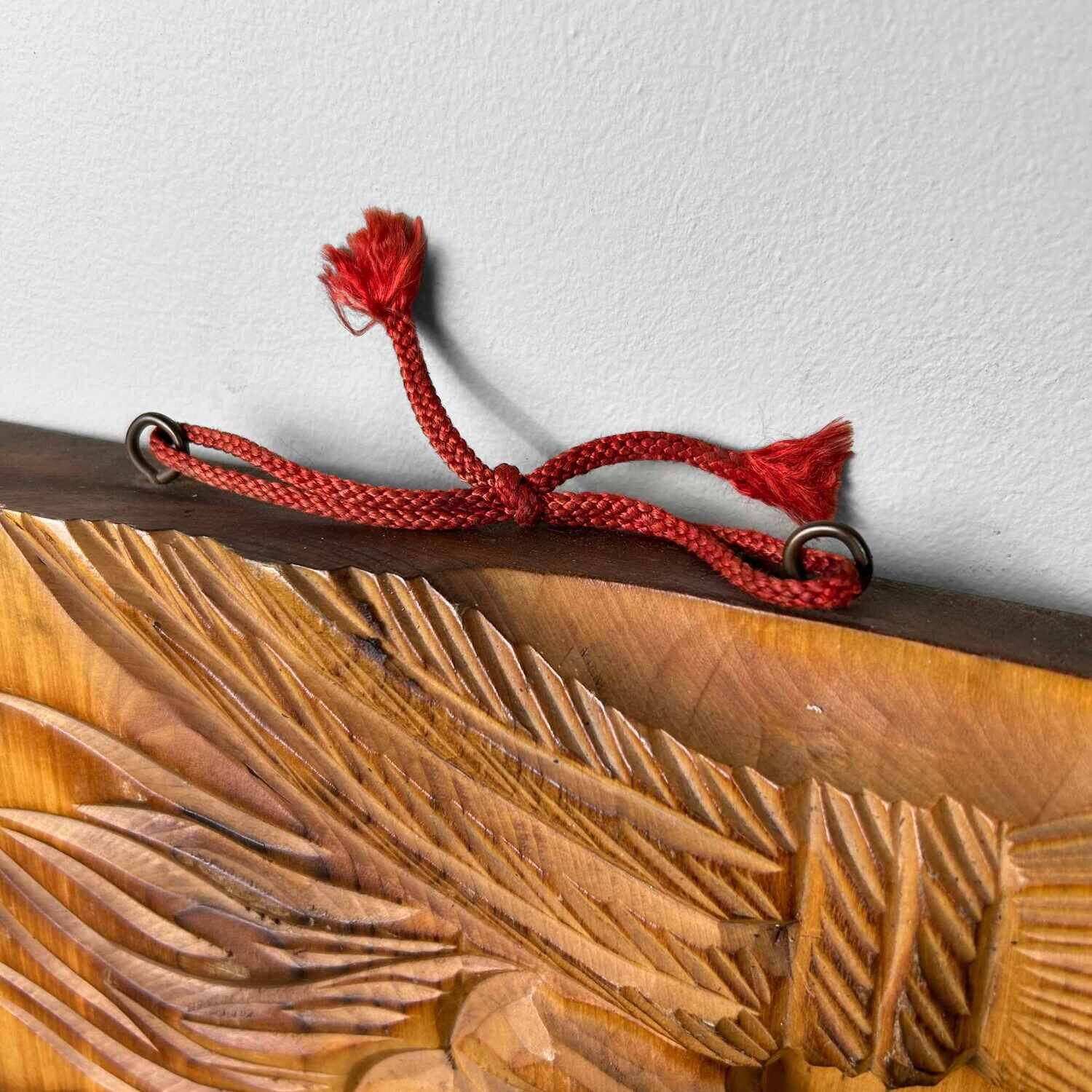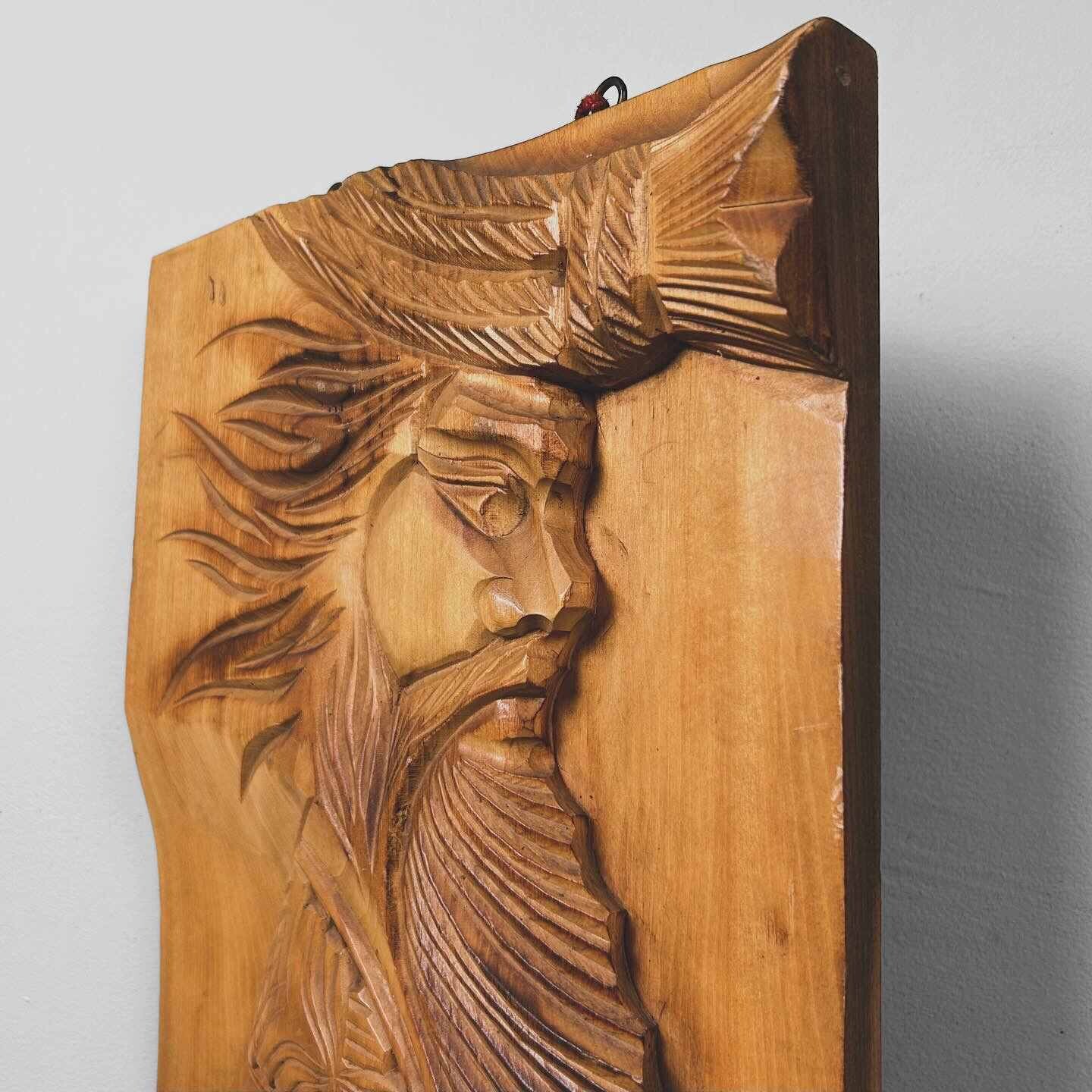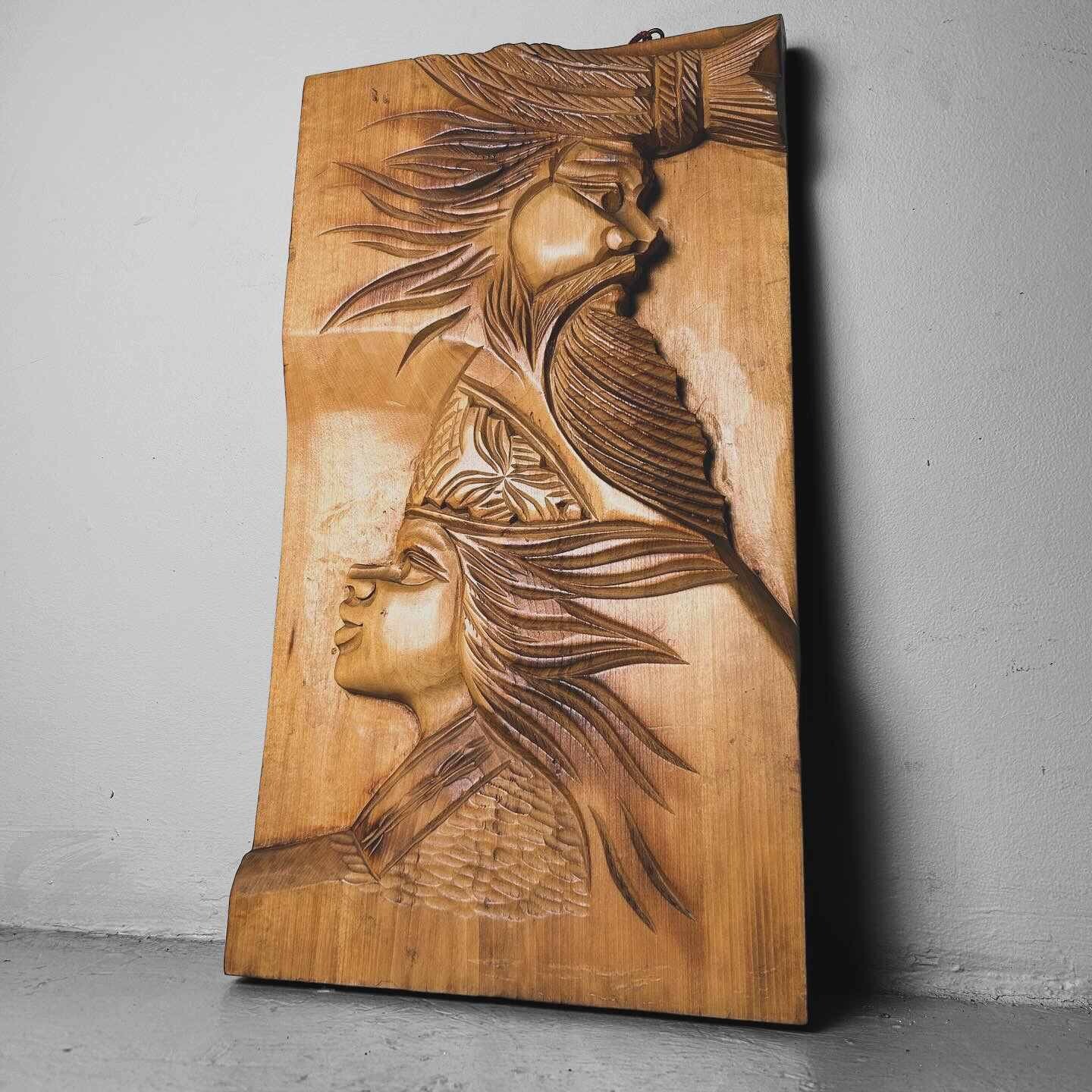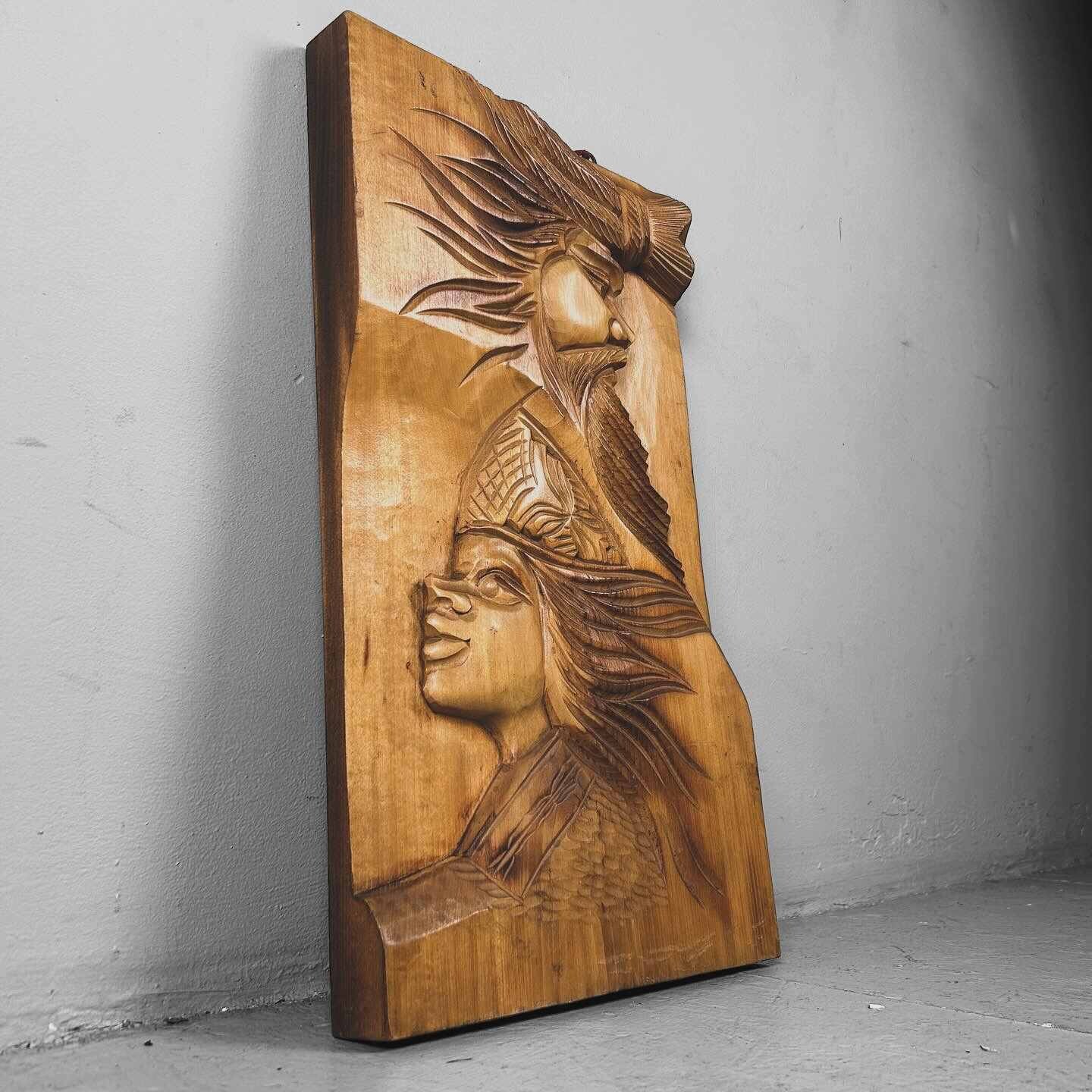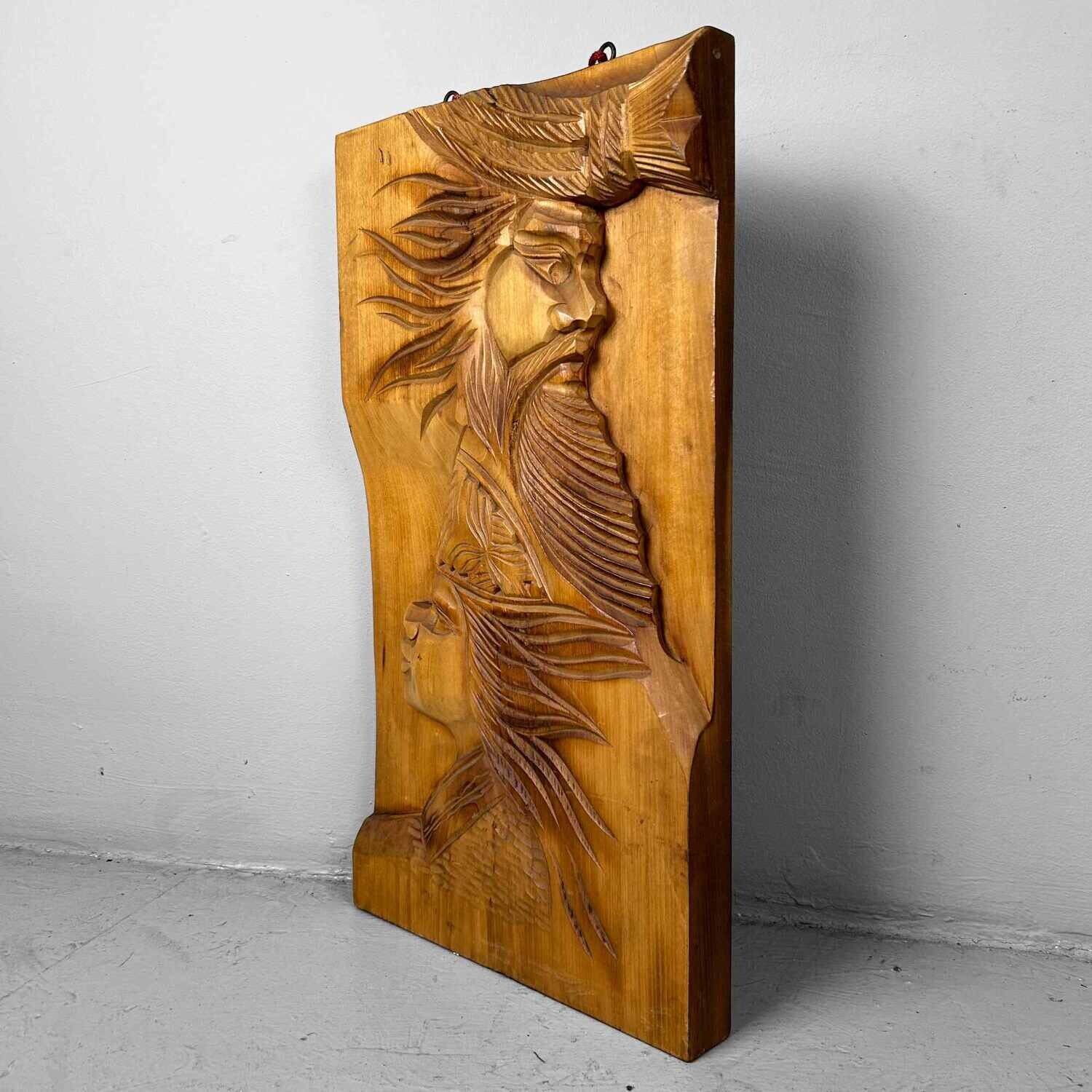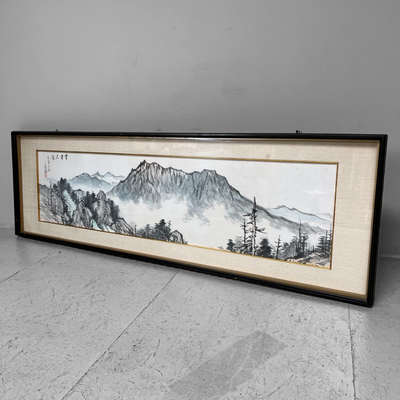Wood-carved Ainu Wall Decoration, 1970s, Hokkaido, Japan.
Wooden hand-carved wall decoration from Hokkaido, Japan.
The wooden panel features an Ainu man and woman.
On the reverse side, a text is engraved, serving as a memento of a trip to Hokkaido in 1978.
Dimensions: height 50 cm, width 25 cm, depth 4 cm.
The Ainu are an indigenous people in Japan, primarily located in the northern regions of Hokkaido, the Kuril Islands, and parts of the Russian Far East. They have a distinctive culture, language, and history that differs from the majority of the Japanese population. The Ainu language is a language isolate, meaning it is not clearly related to any other known language.
Historically, the Ainu engaged in hunting, fishing, and gathering and had a deep spiritual connection with nature. Their traditional clothing, tattoos, and woodcarvings are distinctive elements of Ainu culture. The Ainu faced discrimination and assimilation policies over the years, but efforts have been made recently to recognize and preserve their cultural heritage.
In 2019, the Japanese government officially recognized the Ainu as an indigenous people of Japan, marking a step towards acknowledging and preserving their unique cultural identity. The Ainu culture is rich in rituals, music, dance, and symbolic artifacts, providing a valuable contribution to Japan's diverse cultural landscape.
